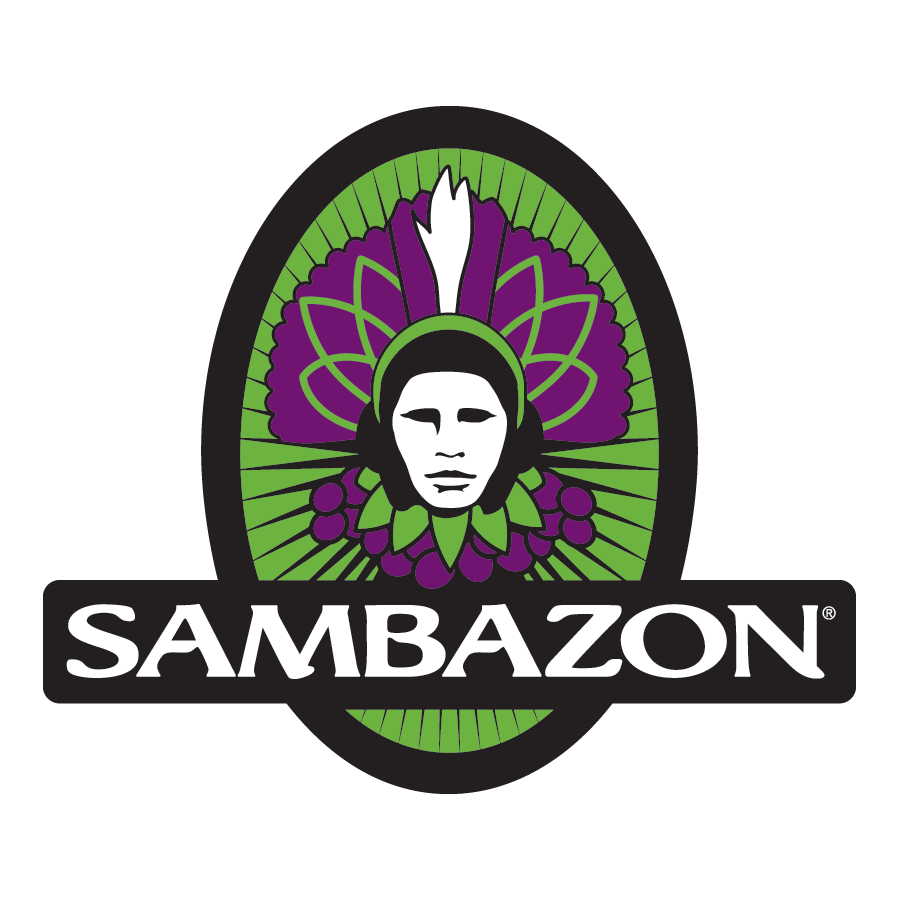 In 2000 we first experienced Açaí and observed that it had become a huge success within Brazil and was destined for international fame. We also recognizing that this non-timber forest product (NTFP) had the potential to become a sustainable force in the Amazon Rainforest rather than an exploitive industry as countless others had before it (sugarcane, soy). As social entrepreneurs, we set out on a mission to prove the case for sustainable development in the Amazon and founded Sambazon - “Sustainable Management of the Brazilian Amazon”. We developed a Fair Trade “market driven conservation” business model around bringing açaí to the worldwide marketplace that would ensure positive environmental and social development in the açaí harvest regions – thus linking each dollar of sales with economic and environmental gain on the ground, fighting poverty and protecting biodiversity and social justice. We knew that with sound business practices and a lot of hard work, Açaí could be an overwhelmingly positive impact for the local communities and the environment.
In 2000 we first experienced Açaí and observed that it had become a huge success within Brazil and was destined for international fame. We also recognizing that this non-timber forest product (NTFP) had the potential to become a sustainable force in the Amazon Rainforest rather than an exploitive industry as countless others had before it (sugarcane, soy). As social entrepreneurs, we set out on a mission to prove the case for sustainable development in the Amazon and founded Sambazon - “Sustainable Management of the Brazilian Amazon”. We developed a Fair Trade “market driven conservation” business model around bringing açaí to the worldwide marketplace that would ensure positive environmental and social development in the açaí harvest regions – thus linking each dollar of sales with economic and environmental gain on the ground, fighting poverty and protecting biodiversity and social justice. We knew that with sound business practices and a lot of hard work, Açaí could be an overwhelmingly positive impact for the local communities and the environment.Today all of the hundreds of independent family farmers and cooperatives we work with are USDA Organic certified and have been assisted and/or trained in wild crop harvesting to ensure a sustainable source of the fruit. We remain the first and only source of Açaí to be certified Ecocert Fair Trade, providing sustainable employment for over 3,000 people and fostering environmental stewardship on over 1.7 million acres of biodiverse agro-forestry farms in Amapá and Pará States. Both the IEPA (Institute for Environmental Research of Amapá State) and the IBAMA (Brazil's equivalent of the EPA) have officially confirmed that Sambazon’s açaí extraction does not harm the environment.
Sambazon’s efforts in developing industry standards over the years have been felt on a large scale, working directly with the Brazilian authorities on Food Safety and Good Manufacturing Practices (GMPs). This influence has caused significant positive change throughout the entire Açaí supply chain, from the tree to the processing plants to the community at large.
In 2003, as part of our commitment to our mission, Sambazon founded the Sustainable Amazon Partnership (SAP), a public and private collaboration with the Brazil Foundation and the Peabiru Institute to ensure the lasting sustainable management of the Açaí regions and communities in the Amazon. From inception, this organization has been supported by the Nature’s Conservancy and the World Wildlife Fund, and through collaboration from its partners, the SAP has been able to add value to the social, environmental, and economic issues for thousands of families and acreage. This has included Açaí training programs, technical assistance, establishment of baseline bio-social indicators for future statistical evaluation, sustainability programs and alternative income generating activities for thousands of woman, youth and small family farmers.
But it’s not just us saying this: Greenpeace, claimed that Açaí may be one of the best ways to "save the rainforest". The Royal Tropical Institute, stated that "Sambazon's work with açaí is aimed to contribute to sustainability in the Amazon Rainforest and alleviate poverty". We also received the 2006 “US Secretary of State Award for Corporate Excellence" from Condoleezza Rice along with the Ashoka Organization’s 2006 Changemakers Innovation Awards: "Market Based Strategies to Benefit Low Income Communities".
We are proud to have built a state of the art Açaí plant in the State of Amapá, which has become the global reference for excellence in Açaí processing. Run by Brazilians, our plant has developed leading edge manufacturing technologies and new açaí products and remains an environmental and industrial relations landmark in the Açaí industry.
Recently, an article was published in the press which irresponsibly suggested that a “Superfood on Oprah (Açaí) was robbing the Amazon poor of their staple”. To the contrary, Açaí has been the source of significant economic gain for the Amazon’s poor family farmers and fortunately when harvested in a way which is consistent with Sambazon’s benchmark industry practices, protects the bio-diversity of the world’s most important source of flora, fauna and scientific potential. It is true that the local price of Açaí has risen over the last 20 years as one might expect when it is “discovered”. But it is also true that 98% of this fruit has been purchased and consumed in Brazil. Further, the increased prices have resulted in a better standard of living and financial freedom to thousands of family farms, not to some multinational. Supporting family farmers while protecting the world’s most important rainforest is what Sambazon’s mission has been all along.
Yesterday, Fox News gave us the opportunity to go on national television and tell the plain facts. I encourage you to check out the segment here and help us spread the word so we can continue to make positive change in the Amazon Rainforest and beyond.
Sincerely,
Ryan Black
Founder and CEO

